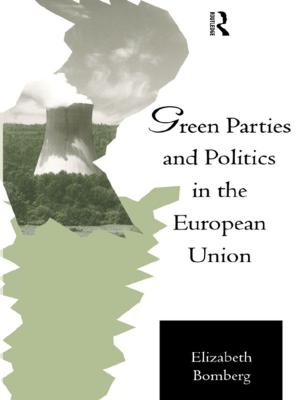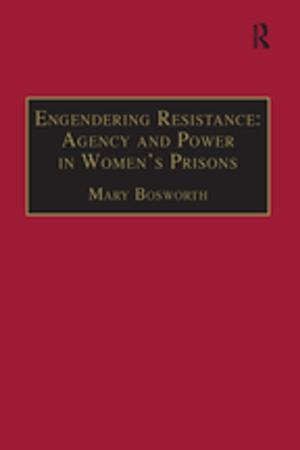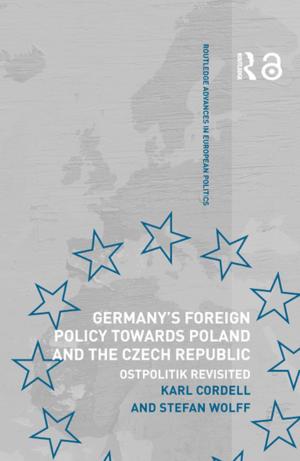The Structural Prevention of Mass Atrocities
Understanding Risk and Resilience
Nonfiction, Social & Cultural Studies, Political Science, International, International Security, International Relations| Author: | Stephen McLoughlin | ISBN: | 9781134594047 |
| Publisher: | Taylor and Francis | Publication: | July 17, 2014 |
| Imprint: | Routledge | Language: | English |
| Author: | Stephen McLoughlin |
| ISBN: | 9781134594047 |
| Publisher: | Taylor and Francis |
| Publication: | July 17, 2014 |
| Imprint: | Routledge |
| Language: | English |
This book offers a different approach to the structural prevention of mass atrocities. It investigates the conditions that enable vulnerable countries to prevent the perpetration of such violence.
Structural prevention is commonly framed as the identifying and ameliorating of the ‘root causes’ of violent conflict, a process which typically involves international actors determining what these root causes are, and what the best courses of action are to deal with them. This overlooks why mass atrocities do not occur in countries that contain the presence of root causes. In fact, very little research has been conducted on what the causes of peace and stability are, particularly in relatively countries located in regions marred by civil war and mass atrocities. To better understand how such vulnerable countries prevent the commission of mass atrocities, this book proposes an analytical framework which enables not only an understanding of risk which arises from the presence of root causes, but also of the factors that build resilience in countries, and consequently mitigate and manage such risk. Using this framework, three countries – Botswana, Zambia and Tanzania, are analysed to account for their long term stability despite their location in neighbourhoods characterised by decades of civil war, ethnic repression and mass atrocities.
This work is a significant contribution to the field of genocide studies and crimes against humanity and will be of interest to students and scholars alike.
This book offers a different approach to the structural prevention of mass atrocities. It investigates the conditions that enable vulnerable countries to prevent the perpetration of such violence.
Structural prevention is commonly framed as the identifying and ameliorating of the ‘root causes’ of violent conflict, a process which typically involves international actors determining what these root causes are, and what the best courses of action are to deal with them. This overlooks why mass atrocities do not occur in countries that contain the presence of root causes. In fact, very little research has been conducted on what the causes of peace and stability are, particularly in relatively countries located in regions marred by civil war and mass atrocities. To better understand how such vulnerable countries prevent the commission of mass atrocities, this book proposes an analytical framework which enables not only an understanding of risk which arises from the presence of root causes, but also of the factors that build resilience in countries, and consequently mitigate and manage such risk. Using this framework, three countries – Botswana, Zambia and Tanzania, are analysed to account for their long term stability despite their location in neighbourhoods characterised by decades of civil war, ethnic repression and mass atrocities.
This work is a significant contribution to the field of genocide studies and crimes against humanity and will be of interest to students and scholars alike.















